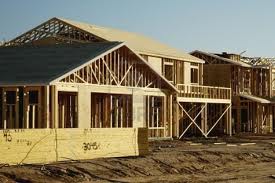 When the American housing bonanza came to a painful and sudden stop in 2008, the home remodeling industry in the United States lost more than 100,000 jobs in just a few months. Until early 2011, industry analysts expressed concern about the possibility of those jobs never coming back, but once median home prices stopped falling things began to look up. Now that home sales are beginning to pick up again, the phones of home remodeling contractors are once again ringing.
When the American housing bonanza came to a painful and sudden stop in 2008, the home remodeling industry in the United States lost more than 100,000 jobs in just a few months. Until early 2011, industry analysts expressed concern about the possibility of those jobs never coming back, but once median home prices stopped falling things began to look up. Now that home sales are beginning to pick up again, the phones of home remodeling contractors are once again ringing.
According to a recent report on NBC News, the home remodeling industry currently employs about 250,000 workers, down from a high of 327,000 in 2007. This is an industry that is dominated by independent contractors with modest payrolls. Skilled home improvement teams are typically small, but they often rely on temporary workers to help them get through more ambitious projects. Contractors interviewed by NBC News said that they are being cautious about hiring too many permanent employees; they would not like to go through the painful process of layoffs seen just a few years ago.
Home Improvement and Remodeling Demand
The Harvard University Joint Center for Housing Studies and the National Association of the Remodeling Industry both expect that increased demand for home remodeling in 2013 will boost the overall economy. This demand will be motivated by different factors, starting with deal hunters who focus on dirt-cheap homes that have been neglected by the former tenants or the mortgage lenders that repossessed them through the foreclosure process.
Now that median home prices are steadily rising, homeowners are bound to be motivated to fix up their properties before putting up a "For Sale" sign in their front yard. As consumer confidence and employment levels improve, mortgage lenders are more likely to extend cash-out refinance and home equity credit opportunities to qualified borrowers for home improvement purposes.
With housing inventories diminishing, even real estate investors may call upon home remodeling contractor to make their properties more appealing to potential buyers. In this sense, home shoppers are becoming more finicky when they are looking at properties. Many house hunters are now looking specifically for energy-efficient homes as well as extra features that will make them more attractive to future homeowners and thus easier to resell.



